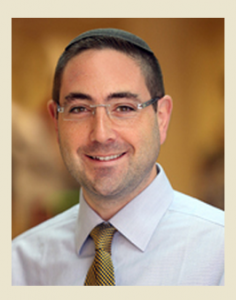
By Rabbi Ari Enkin, rabbinic director, United with Israel
“Just as it is a mitzvah (commandment) to give advice when it is likely to be accepted, it is also a mitzvah to keep quiet when the advice will not be accepted.”
We’re at a bit of milestone this week. This week we begin reading of the fifth and final book of the Torah, the book of Devarim (Deuteronomy).
The first reading of every book of the Torah takes on the name of the book itself. As such –you guessed it—this week’s Torah portion is Devarim (Deuteronomy 1:11 – 3:22). The reading is somewhat of a review of the Jewish People’s 40 years of wandering in the desert, as they now prepare to enter the Land of Israel. Moses reminds them, and rebukes them, for some of the events over the last four decades. Indeed, the entire Book of Deuteronomy can essentially be called “Moses’ Final Sermon.”
One of the first things that Moses brings up is the Jewish People’s request to send spies to check out the Land of Israel. Although Moses rebukes them for their attitude at the time, he does confess that “the idea was good in my eyes.”
The Talmud explains that Moses himself felt that the idea to send spies was a good idea, but God, however, did not think so. God, of course, knew that the episode of the spies would end tragically, as it certainly did, and therefore He was opposed to the idea.
Moses liked the idea. God did not. So here’s the question: Why did God let them go at all? Why didn’t He object and just say, “Sorry Moses, the mission is off. Trust me, the outcome will be disastrous”? Who was running the show?
The answer, my friends, is also a lesson in parenting.
Sometimes, or actually, very often, our children want to do something, try something, or go somewhere that, as parents, we feel might not be appropriate. It might be dangerous, unhealthy or otherwise ill-advised.
But should we always say no to such ideas?
Maybe we should learn from God (not a bad role model, eh?) that sometimes when our children want to do something that might not be ideal for them, we should simply keep quiet. Maybe we should let them make their own mistakes, and by extension, let them grow to make better decisions in the future. This is not to say that we should keep quiet and let them put their lives on the line. Absolutely not. But sometimes a small scrape or scratch made as a result of a poor decision on their part can serve as a lifelong lesson and opportunity for growth.
God knew that the people would not have reacted too happily or calmly had He knocked down their idea. As we see time and time again throughout the 40 years of wandering: The people always think they know better than God! (And kids always think they know better than their parents.) God knew that the people would not accept anything that He had to say, so He just kept quiet.
And so it is with us. Sometimes educating and teaching our children the proper choices they should make means keeping quiet or silently conceding to their whims and wishes. If you know they won’t accept a no, maybe you shouldn’t waste your time. Let kids make kid-sized mistakes. As the Talmud teaches: “Just as it is a mitzvah (commandment) to give advice when it is likely to be accepted, it is also a mitzvah to keep quiet when the advice will not be accepted.”
Send Passover Packages to Needy Israeli Soldiers - Bring Them Joy!
We are honored to thank the young men and women of the IDF who risk their lives every day to protect the citizens of Israel. Since October 7th, soldiers have been on the battlefield for months - many are hoping to come home for Passover.
Join us in sending Passover food packages (and personal notes) to Israeli soldiers and their families.
Many soldiers spend the Passover holiday with needy families back home. The soldiers greatly appreciate your love and concern. Bring them Passover joy!
CLICK HERE TO SEND YOUR PACKAGE AND NOTE TO ISRAELI SOLDIERS!



